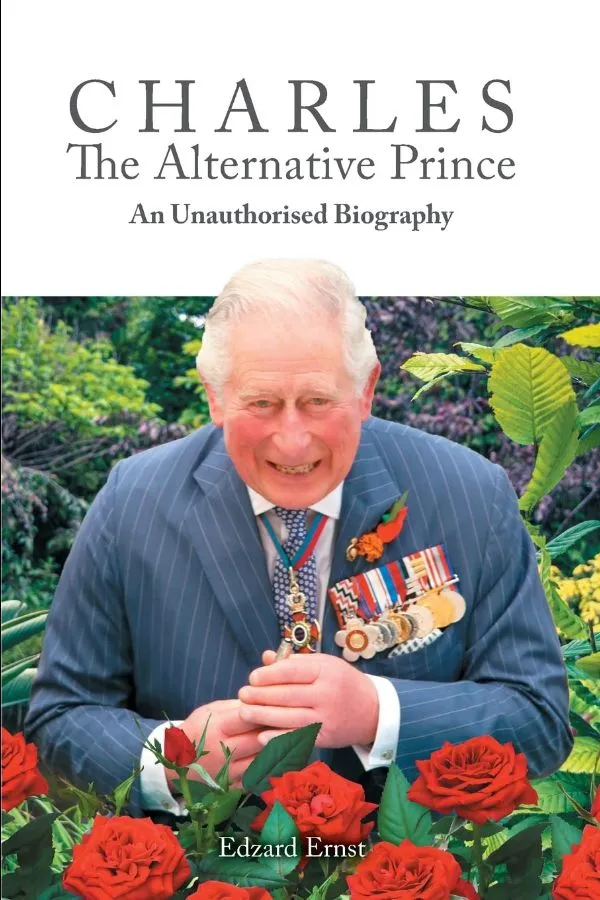King Charles III
Mark Honeychurch - 12th September 2022
I’m English by birth, and in my youth had something of an unusual connection to the British royal family because of where I grew up, the Isles of Scilly. The islands are owned by the Duchy of Cornwall, which means they’re the property of the Prince of Wales. As such, as a teenager I was not so much used to seeing Charles, Diana or the Queen (although they did visit the islands regularly) as I was used to seeing paparazzi photographers turning up with their ridiculously long telephoto lens to get that exclusive photo of Charles and Diana relaxing on holiday.

I can just about make out my childhood home in this photo!
Despite my oblique connection to the royals (as well as a short time I spent as a commissioned officer in Her Majesty’s armed forces), I have no love for the royal family. Maybe it’s because I’ve spent a lot of my life living in New Zealand, and trying to get my head around how the Queen was ever relevant to this country in any meaningful way. It feels like modern New Zealand would be doing just as well without a head of state whose only credentials are that they happened to be born into a certain family at the right time.
It’s sad that the Queen died recently, like it’s sad when anyone dies, but I’m currently more focused on the fact that there’s now a new head of state who seems to have a tenuous connection with reality when it comes to science and medicine.
Some of the highlights (or more likely lowlights) of Charles’ dabbling with nonsense include:
Being duped by fraudster Laurens van der Post into believing in the concept of “vitalism”, and that he should talk to his plants to help them grow.
Creating the Prince’s Foundation for Integrated Health, which attempted to lobby the government to include alternative medicine in the NHS (thankfully the foundation was shut down after accusations of fraud).
Becoming the patron of the Faculty of Homeopathy in the UK in 2019. Michael Marshall from the Merseyside Skeptics said at the time:
“This news is sadly no surprise, given how routinely Prince Charles has used his royal platform to advocate for an anti-science position when it comes to homeopathy, but it is obscene to think that the UK’s next head of state believes this is an appropriate issue to use his considerable public profile to promote. We have been reminded only recently that plenty of homeopaths claim to be able to treat autism and discourage vaccinations. If Prince Charles wants to have a genuine positive effect on the health of the nation he intends to one day rule, he should side against those who offer dangerously misleading advice, rather than fighting their corner.”
Selling, through his company Duchy Herbals, a range of herbal remedies including “treatments” for cold and flu, anxiety, and detoxing:
Duchy Herbals Detox Tincture is made from extracts of Artichoke and Dandelion, cleansing and purifying herbs to help support the body’s natural elimination and detoxification processes, and help maintain healthy digestion. Duchy Herbals Detox Tincture can be taken as part of a regular detox program.
Professor Edzard Ernst, professor of Complementary Medicine, is a good, skeptical academic who always took his role seriously and dared to ask the hard questions about alternative medicines, like “do they actually work?”. And, of course, he found time and time again that the answer to that question was “probably not”. Professor Ernst has a history of butting heads with Charles, and I found out recently that he’s published an entire book about Charles’ bad ideas, called “Charles, The Alternative Prince: An Unauthorised Biography”.

Here’s what the publisher has to say about the book:
Prince Charles has entertained a long-standing love affair with alternative medicine. This book describes his passion as it developed during the last 40 years. The Prince’s beliefs, opinions, and ambitions are critically assessed against the background of the scientific evidence. In most instances, the contrast could not be starker. Thus, Charles’ tenacious promotion of unproven, disproven, and occasionally harmful alternative therapies turns out to be little more than the pipe dream of a self-declared enemy of the Enlightenment. The book portrays our future king, reviews the evidence on alternative medicine, and inspires critical thinking.
Without having read it, from what I can tell Ernst has used this book as a way to try to convey to a lay audience some of the fundamentals of critical thinking, and a summary of the lack of quality evidence for alternative medicines such as Osteopathy, Chiropractic, Gerson Therapy, Herbal Medicine, Ayurvedic Medicine and Homeopathy. It looks like I now have a new book to add to my Christmas wish list!